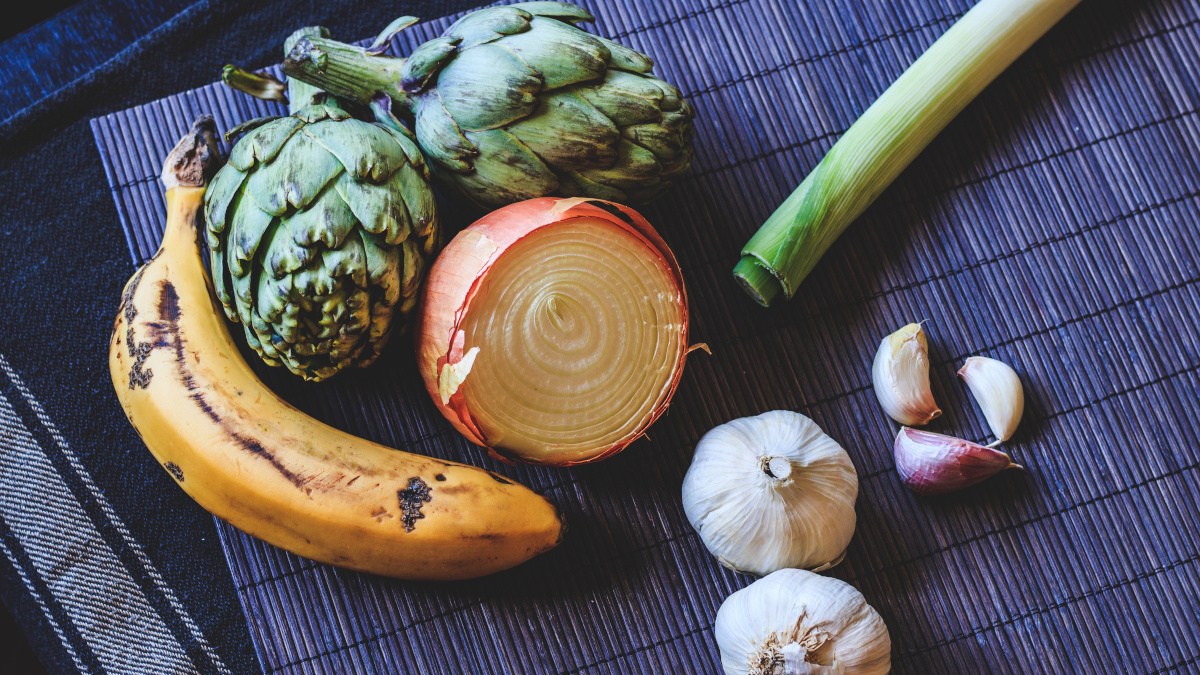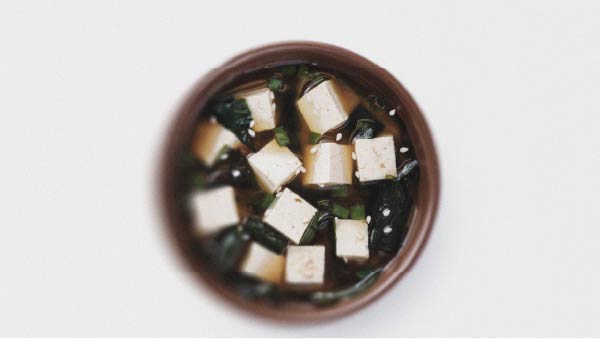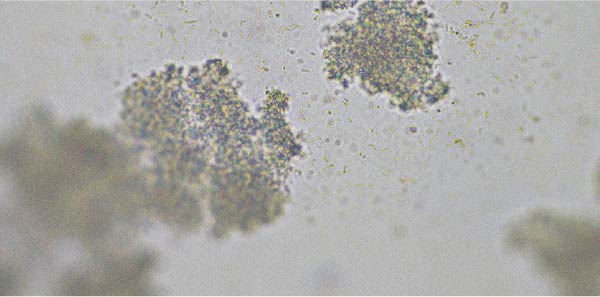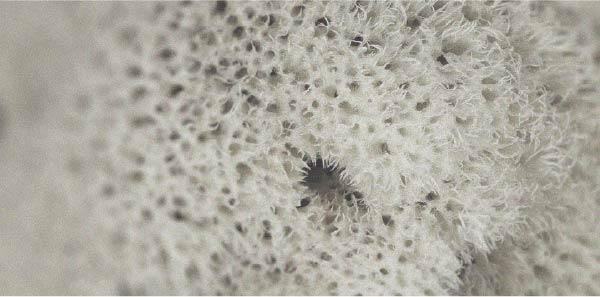Fructooligosaccharides: What are they? Why should you take them?
Perhaps you’ve heard of fructooligosaccharides (FOS) but don’t know much about them? Read on to discover the virtues of this little-known but highly beneficial source of fibre.

Fructooligosaccharides: a specific type of fibre
Also known as oligofructose, fructooligosaccharides are primarily classified as a source of dietary fibre.
Exclusive to the plant kingdom, they are largely composed of complex carbohydrates (polysaccharides) the chemical structure of which impedes activation of digestive enzymes. As a result, they are neither hydrolyzed (metabolised) nor absorbed by the body (1).
Although dietary fibre has no nutritional value, it works in various ways to help regulate digestive balance. There are two forms, each with its own specific properties (2):
- soluble fibre, which dissolves in water, lines the gut walls with a viscous gel which causes the stomach to empty more slowly and effectively produces a feeling of prolonged fullness (3). Very gentle on the gut, this kind of fibre includes types of gum, mucilage, and pectin, as well as the subject of this article, FOS.
- insoluble fibre, which does not dissolve in water, bulks out stools by increasing their volume and acts mechanically to facilitate the mechanism of defecation. However, it’s thought to be more irritating to sensitive guts (4). This kind of fibre includes cellulose, hemicellulose and lignin.
Some types of fibre, though not all, are also fermented in the large intestine. In fact, the way they interact with gut flora (the microbiota) is attracting significant interest among the scientific community (5).
With its complementary and versatile nature, dietary fibre has a direct effect in helping to maintain good general health (6). A daily intake of 25g-30g is thus recommended by one European health safety agency (7), though dietary behavior studies suggest many Europeans (French, Danes, Italians and Czechs) actually consume less than 20g a day (8).
What’s specific about FOS?
Composed of linear chains of fructose units (from 2 to 60) often terminating in a glucose unit, FOS are in some ways similar to sucrose: like table sugar, they actually have a naturally sweet taste, though they have only half the calories (just 2 kcal/g).
Taking on all the advantages of soluble fibre, fructooligosaccharides also offer a prebiotic action (9). As fermentable sugars, they act as a substrate – in other words, nourishment – for bacteria in the large intestine.
This colonic fermentation also results in the release of valuable metabolites, including short-chain fatty acids (SCFAs), the preferred nutrient of colonocytes (the cells lining the walls of the colon) (10). Studies also suggest a link between inadequate production of SCFAs and the onset of gut disorders following antibiotic treatment (11).
How can we boost our intake of fructooligosaccharides?
In their natural state, FOS are found in various plant foods such as wheat, barley, artichokes, bananas, chicory, asparagus, garlic and onion (12). It therefore makes sense to include these foods in your diet on a regular basis.
If, however, your diet is normally low in fibre (with few fruits and vegetables, whole grains and pulses), we’d recommend adding it gradually in order to gauge your particular tolerance threshold.
Too much dietary fibre (or consumption by someone not used to it) can lead to mild digestive discomfort caused by excessive fermentation. Typically, this manifests in bloating, flatulence or nausea (13). In such cases, a slight reduction in your daily fibre intake should be enough to restore optimal gut comfort, before you once again start to gradually increase your intake.
It’s worth knowing that FOS can also be synthesised from cane sugar or beet sugar, via enzymatic fermentation by a particular microscopic fungus called Aspergillus niger. Indeed, it’s this innovative bioconversion which has made it possible to develop FOS supplements.
To boost your intake of FOS, always opt for a fructooligosaccharide supplement based on the strictest quality system (such as Fructooligosaccharides, obtained from sugar beet and produced by the French company Tereos without using GMO) (13-14).
References
- National Research Council (US) Committee on Diet and Health. Diet and Health: Implications for Reducing Chronic Disease Risk. Washington (DC): National Academies Press (US); 1989. 10, Dietary Fiber. Available from: https://www.ncbi.nlm.nih.gov/books/NBK218764/
- Dhingra D, Michael M, Rajput H, Patil RT. Dietary fibre in foods: a review. J Food Sci Technol. 2012 Jun;49(3):255-66. doi: 10.1007/s13197-011-0365-5. Epub 2011 Apr 12. PMID: 23729846; PMCID: PMC3614039.
- Salleh SN, Fairus AAH, Zahary MN, Bhaskar Raj N, Mhd Jalil AM. Unravelling the Effects of Soluble Dietary Fibre Supplementation on Energy Intake and Perceived Satiety in Healthy Adults: Evidence from Systematic Review and Meta-Analysis of Randomised-Controlled Trials. 2019 Jan 6;8(1):15. doi: 10.3390/foods8010015. PMID: 30621363; PMCID: PMC6352252.
- Bijkerk CJ, Muris JW, Knottnerus JA, Hoes AW, de Wit NJ. Systematic review: the role of different types of fibre in the treatment of irritable bowel syndrome. Aliment Pharmacol Ther. 2004 Feb 1;19(3):245-51. doi: 10.1111/j.0269-2813.2004.01862.x. PMID: 14984370.
- Myhrstad MCW, Tunsjø H, Charnock C, Telle-Hansen VH. Dietary Fiber, Gut Microbiota, and Metabolic Regulation-Current Status in Human Randomized Trials. 2020 Mar 23;12(3):859. doi: 10.3390/nu12030859. PMID: 32210176; PMCID: PMC7146107.
- Partula V, Deschasaux M, Druesne-Pecollo N, Latino-Martel P, Desmetz E, Chazelas E, Kesse-Guyot E, Julia C, Fezeu LK, Galan P, Hercberg S, Mondot S, Lantz O, Quintana-Murci L, Albert ML, Duffy D; Milieu Intérieur Consortium, Srour B, Touvier M. Associations between consumption of dietary fibers and the risk of cardiovascular diseases, cancers, type 2 diabetes, and mortality in the prospective NutriNet-Santé cohort. Am J Clin Nutr. 2020 Jul 1;112(1):195-207. doi: 10.1093/ajcn/nqaa063. PMID: 32369545.
- Bagheri SM, Debry G. Estimation de la consommation moyenne de fibres alimentaires en France [Estimation of the daily dietary fiber intake in France]. Ann Nutr Metab. 1990;34(2):69-75. French. doi: 10.1159/000177571. PMID: 2164344.
- Mertens E, Kuijsten A, Dofková M, Mistura L, D'Addezio L, Turrini A, Dubuisson C, Favret S, Havard S, Trolle E, Van't Veer P, Geleijnse JM. Geographic and socioeconomic diversity of food and nutrient intakes: a comparison of four European countries. Eur J Nutr. 2019 Jun;58(4):1475-1493. doi: 10.1007/s00394-018-1673-6. Epub 2018 Mar 28. PMID: 29594476; PMCID: PMC6561990.
- Sabater-Molina M, Larqué E, Torrella F, Zamora S. Dietary fructooligosaccharides and potential benefits on health. J Physiol Biochem. 2009 Sep;65(3):315-28. doi: 10.1007/BF03180584. PMID: 20119826.
- Tan J, McKenzie C, Potamitis M, Thorburn AN, Mackay CR, Macia L. The role of short-chain fatty acids in health and disease. Adv Immunol. 2014;121:91-119. doi: 10.1016/B978-0-12-800100-4.00003-9. PMID: 24388214.
- Mortensen PB, Clausen MR. Short-chain fatty acids in the human colon: relation to gastrointestinal health and disease. Scand J Gastroenterol Suppl. 1996;216:132-48. doi: 10.3109/00365529609094568. PMID: 8726286.
- Zhang M, Juraschek SP, Appel LJ, Pasricha PJ, Miller ER 3rd, Mueller NT. Effects of High-Fiber Diets and Macronutrient Substitution on Bloating: Findings From the OmniHeart Trial. Clin Transl Gastroenterol. 2020 Jan;11(1):e00122. doi: 10.14309/ctg.0000000000000122. PMID: 31972610; PMCID: PMC7056053.
- Shang Y, Kumar S, Thippareddi H, Kim WK. Effect of Dietary Fructooligosaccharide (FOS) Supplementation on Ileal Microbiota in Broiler Chickens. Poult Sci. 2018 Oct 1;97(10):3622-3634. doi: 10.3382/ps/pey131. PMID: 30016495.
- Shang Y, Kumar S, Thippareddi H, Kim WK. Effect of Dietary Fructooligosaccharide (FOS) Supplementation on Ileal Microbiota in Broiler Chickens. Poult Sci. 2018 Oct 1;97(10):3622-3634. doi: 10.3382/ps/pey131. PMID: 30016495.
1 Days
First bottle has been finished
First bottle has been finished. 2 bottles remaining for 3 month time frame trial as recommended
CORCORAN Pamela
6 Days
repeat customer
recommended by my doctor. easy to create an account. Discounts and specials are appreciated. packaging and delivery is dependable. Capsules easy to digest. I've had some some capsules and tablets that are broken inside their bottles.
Kokee
10 Days
Order was shipped on time and packaged…Wonderful Jobs!
Order was shipped on time and packaged excellently.
DMHoge
17 Days
great products and prices
great products and prices
Marie
22 Days
Easy to navigate site
Easy to navigate site, had what I was searching for, good price. easy order-check out
James Tucker
29 Days
My skin is clearing up nicely!
Pretty good for my skin so far.
Christian
31 Days
The new packaging is excellent
The new packaging is excellent - finally! No more squashed boxes and torn envelopes.
GORAN
32 Days
Great Product
Great Product
Larry Garrett
36 Days
Quick shipping
Quick shipping; good price. No issues!
Mary McCarty
37 Days
Thr product is very good and is helping…
Thr product is very good and is helping me on my health. Then is always on time
LUGO Luz
40 Days
Buying was fine
Buying was fine. I had problems with the website not recognizing my login info, and had to call to get it fixed. Other than that, everything was good.
David S. Clark
40 Days
Your super maca and super ginseng are…phenomenal
Your super maca and super ginseng are phenomenal supplements that compliment each other when taking them together. Fantastic feeling of well-being and lots of mid day energy without the crash.
Keith Mason
43 Days
I have had amazing results with every…
I have had amazing results with every supplement I've purchased. I am extremely satisfied with this company
kirstin Torres
43 Days
Fine products
Fine products . They are on the leading edge of online supplements. The only issue -so far-is they sometime run out of subscription items.
Jason Argos
46 Days
The ordering process is very user…
The ordering process is very user friendly and the products always come in a timely manner.
CARTER Rhonda




